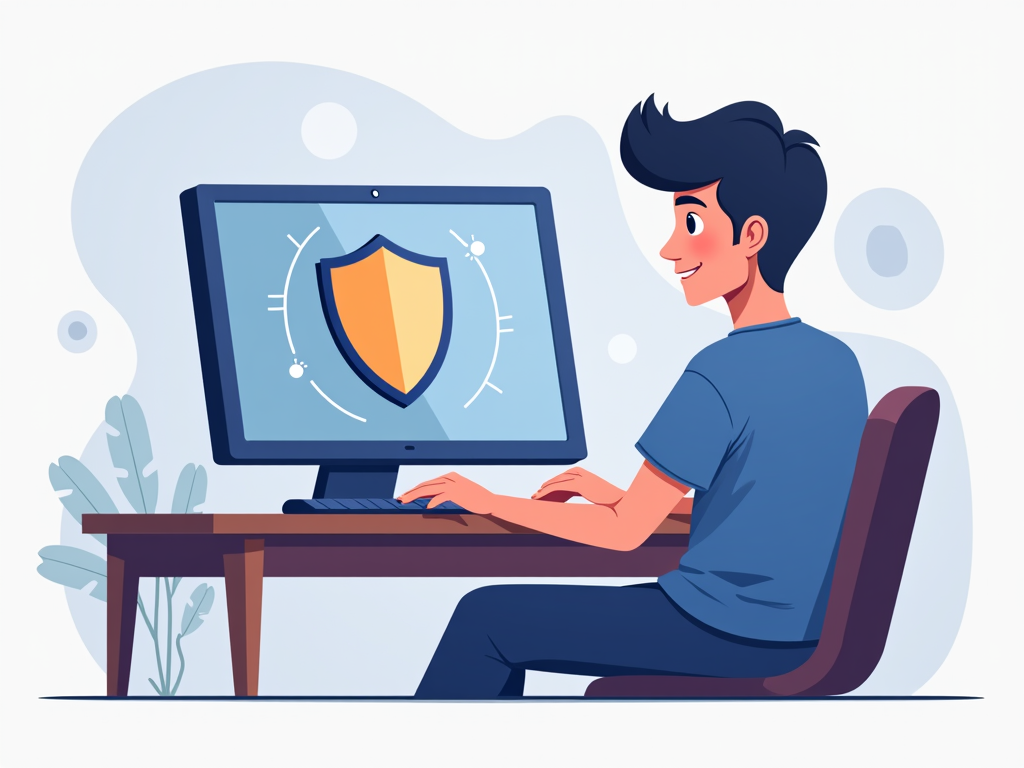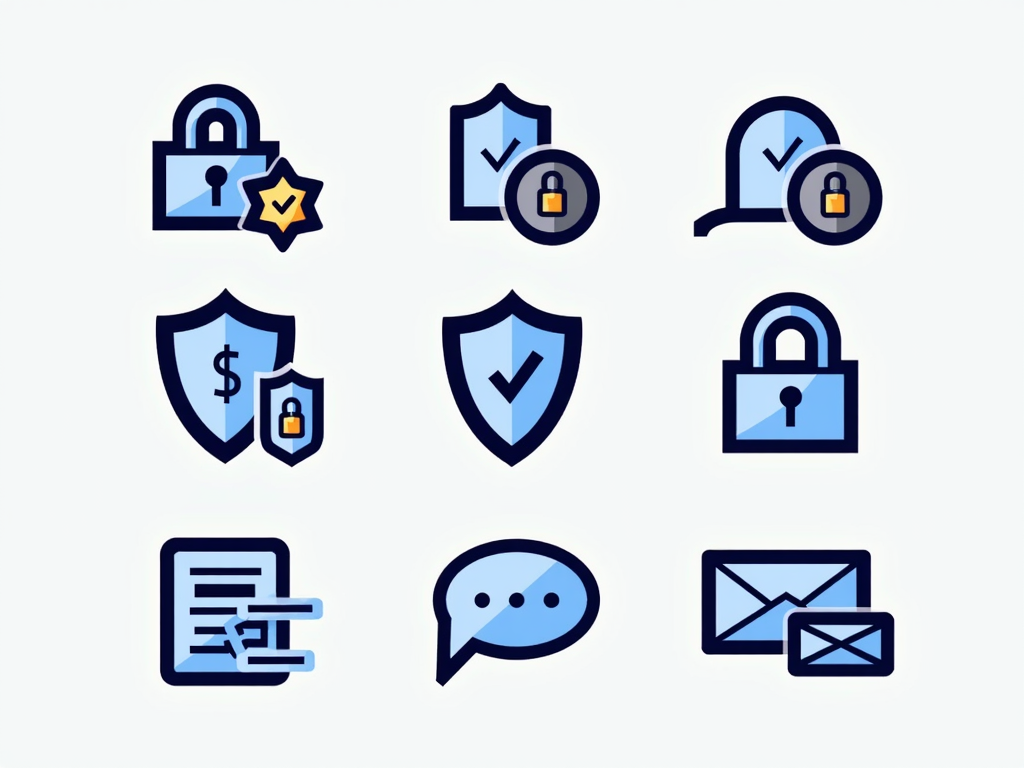Essential Online Privacy Tools for Beginners: A Comprehensive Guide
In today's digital age, online privacy is more important than ever. With the increasing amount of personal information we share online, it's crucial to protect ourselves from potential threats like identity theft, data breaches, and surveillance. This article explores essential online privacy tools for beginners, providing insights and guidance on how to safeguard your personal information online. Whether you're new to the concept of online privacy or looking to enhance your current practices, this guide will help you get started with the right tools and knowledge.
Why Online Privacy Matters
Online privacy is not just a buzzword; it's a necessity in our interconnected world. Every time you browse the internet, shop online, or use social media, you leave a digital footprint that can be tracked, collected, and potentially misused. Without proper protection, your personal information—such as your browsing history, location, and even financial details—can fall into the wrong hands. The risks are real: identity theft, targeted advertising, and even government surveillance are just a few of the threats we face today.
But it's not all doom and gloom. By using the right online privacy tools, you can take control of your digital life. These tools help you browse the web anonymously, secure your communications, and protect your data from prying eyes. The best part? You don't need to be a tech expert to use them. In this guide, we'll walk you through the essential tools that every beginner should know about.

Essential Online Privacy Tools for Beginners
When it comes to protecting your online privacy, there are a few key tools that stand out for their effectiveness and ease of use. Below, we'll explore four essential tools that every beginner should consider incorporating into their digital routine.
1. Password Managers
Password managers are a must-have for anyone serious about online security. These tools help you create, store, and manage strong, unique passwords for all your online accounts. Instead of trying to remember dozens of complex passwords, you only need to remember one master password. The password manager takes care of the rest, automatically filling in your login details when needed.
Why it's important: Using the same password across multiple sites is a common but dangerous practice. If one site is hacked, all your accounts become vulnerable. A password manager eliminates this risk by generating and storing unique passwords for each site.
2. Virtual Private Networks (VPNs)
A VPN is a powerful tool that encrypts your internet connection, making it difficult for anyone to intercept your data. When you connect to a VPN, your internet traffic is routed through a secure server, masking your IP address and location. This is especially useful when using public Wi-Fi networks, which are often unsecured and prone to hacking.
Why it's important: Without a VPN, your online activities can be easily tracked by your internet service provider (ISP), advertisers, or even hackers. A VPN ensures that your browsing remains private and secure.
3. Encrypted Messaging Apps
Encrypted messaging apps use end-to-end encryption to protect your communications. This means that only you and the recipient can read your messages; not even the app provider can access them. Popular apps like Signal and WhatsApp offer this feature, making them a safer choice for private conversations.
Why it's important: Standard messaging apps and emails can be intercepted or hacked, exposing your personal conversations. Encrypted messaging apps provide an extra layer of security, ensuring your messages stay private.
4. Privacy-Focused Browsers
Privacy-focused browsers are designed to protect your online activities by blocking trackers, ads, and other privacy-invading features. Browsers like Brave and Firefox Focus prioritize user privacy, offering features like automatic HTTPS upgrades and built-in ad blockers.
Why it's important: Regular browsers often collect and share your browsing data with third parties. Privacy-focused browsers minimize this data collection, giving you more control over your online footprint.

How to Use These Tools
Now that you know about the essential tools, let's dive into how to use them effectively. Don't worry if you're not tech-savvy; these tools are designed to be user-friendly and accessible to beginners.
Using a Password Manager
- Choose a reputable password manager: Popular options include LastPass, 1Password, and Bitwarden. Look for one that offers strong encryption and good customer support.
- Create a strong master password: This is the key to your password vault, so make it complex and unique. Avoid using easily guessable information like birthdays or pet names.
- Generate and store passwords: When creating a new account, use the password manager to generate a strong, random password. Save it in your vault for future use.
- Enable two-factor authentication (2FA): Many password managers offer 2FA, which adds an extra layer of security by requiring a second form of verification, like a code sent to your phone.
Setting Up a VPN
- Select a trustworthy VPN provider: Look for providers with a no-logs policy, strong encryption, and good reviews. NordVPN, ExpressVPN, and ProtonVPN are popular choices.
- Download and install the VPN app: Most VPNs offer apps for various devices, including smartphones, tablets, and computers.
- Connect to a server: Open the app and choose a server location. For general privacy, you can select a server in your own country. If you want to access region-restricted content, choose a server in the desired location.
- Enable the kill switch: This feature automatically disconnects your internet if the VPN connection drops, preventing your data from being exposed.
Using Encrypted Messaging Apps
- Download a trusted app: Signal and WhatsApp are widely used and trusted for their encryption features.
- Set up your account: Follow the app's instructions to create an account and verify your phone number.
- Start messaging: When you send a message, the app automatically encrypts it. You don't need to do anything extra to ensure privacy.
- Use additional features: Some apps offer disappearing messages or the ability to lock the app with a PIN for extra security.
Switching to a Privacy-Focused Browser
- Choose a browser: Brave and Firefox Focus are excellent options for beginners.
- Install the browser: Download it from the official website or app store.
- Adjust privacy settings: While these browsers are privacy-focused by default, you can further customize settings like blocking third-party cookies or enabling private browsing mode.
- Use it as your default browser: Make it your go-to browser for all your online activities to maximize privacy.

Tips for Maintaining Online Privacy
In addition to using the tools mentioned above, there are several best practices you can follow to further enhance your online privacy:
- Regularly update your software: Keep your operating system, apps, and antivirus software up to date to protect against the latest threats.
- Be cautious with public Wi-Fi: Avoid accessing sensitive information, like banking details, on public networks. If you must, always use a VPN.
- Limit the information you share online: Think twice before posting personal details on social media or other public platforms.
- Use two-factor authentication (2FA): Enable 2FA on all your accounts to add an extra layer of security.
- Review app permissions: Regularly check the permissions granted to apps on your devices and revoke any that aren't necessary.
By incorporating these habits into your daily routine, you'll be well on your way to maintaining a strong online privacy posture.

Conclusion
Protecting your online privacy doesn't have to be complicated. By using essential tools like password managers, VPNs, encrypted messaging apps, and privacy-focused browsers, you can significantly reduce your risk of falling victim to online threats. Start with one tool at a time, and gradually incorporate more as you become comfortable. Remember, online privacy is an ongoing process, not a one-time fix. Stay informed, stay vigilant, and take control of your digital life.
For those who want to delve deeper into the world of online privacy, check out the recommended readings below. These resources will provide you with additional insights and advanced tips to further enhance your privacy practices.